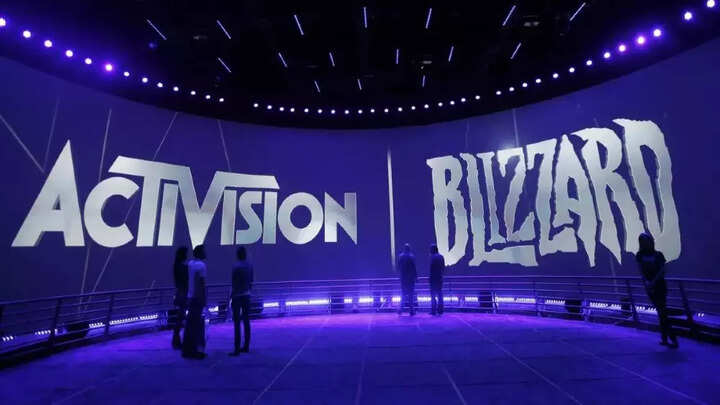How was it affecting teams and players
The US Department of Justice (DOJ) recently filed a lawsuit against Activision Blizzard over salary limits in professional esports leagues. The lawsuit was filed in the US District Court in Washington that accused the game-developing studio that owns leagues built around its “Overwatch” and “Call of Duty” video games. This lawsuit alleged that the independently owned teams imposed a tax that “effectively operated as a salary cap, penalised teams for paying esports players above a certain threshold and limited player compensation in these leagues.” According to a report by Reuters, the DOJ has now agreed to settle with Activision Blizzard to resolve the lawsuit. However, the settlement needs to be approved by a federal judge.
Activision’s competitive balance tax policy: What is it and how it affected teams
The DOJ lawsuit claimed that the “competitive balance tax” policy was designed to penalise teams if their compensation amount exceeded a threshold set by Activision.
As per the filing, “While players in other professional sports leagues have agreed to salary restrictions as part of collective bargaining agreements, the players in Activision’s esports leagues are not members of a union and never negotiated or bargained for these rules.”
The lawsuit also noted that Activision imposed a fine of one dollar on participating teams for every dollar that exceeded the limit. The collected fees were then redistributed among all non-offending teams.
For example, the filing claims that if Activision sets a Competitive Balance Tax threshold of $1 million, a team that has spent $1.2 million on player compensation in a season would have to pay a $200,000 fine, which would be distributed to the other teams.
How the Antitrust Division is stopping Activision from imposing any such fines
Apart from the DOJ, the Antitrust Div
Read Also


ision has also filed a proposed consent decree that will stop the COD maker from imposing any such rules that will penalise teams for exceeding a set amount of compensation.
According to the filing, Activision will also need to certify that “it has ended all Competitive Balance Taxes in its professional esports leagues, to implement revised antitrust compliance and whistleblower protection policies, and to provide notice and an explanation of the final judgment to teams and players in its professional esports leagues.”
The DOJ has also claimed that the Overwatch and Call of Duty leagues have generated millions of dollars. The report also notes that Microsoft is also trying to clear the regulatory hurdles to move forward with its planned purchase of the gaming studio.
FacebookTwitterLinkedin

The US Department of Justice (DOJ) recently filed a lawsuit against Activision Blizzard over salary limits in professional esports leagues. The lawsuit was filed in the US District Court in Washington that accused the game-developing studio that owns leagues built around its “Overwatch” and “Call of Duty” video games. This lawsuit alleged that the independently owned teams imposed a tax that “effectively operated as a salary cap, penalised teams for paying esports players above a certain threshold and limited player compensation in these leagues.” According to a report by Reuters, the DOJ has now agreed to settle with Activision Blizzard to resolve the lawsuit. However, the settlement needs to be approved by a federal judge.
Activision’s competitive balance tax policy: What is it and how it affected teams
The DOJ lawsuit claimed that the “competitive balance tax” policy was designed to penalise teams if their compensation amount exceeded a threshold set by Activision.
As per the filing, “While players in other professional sports leagues have agreed to salary restrictions as part of collective bargaining agreements, the players in Activision’s esports leagues are not members of a union and never negotiated or bargained for these rules.”
The lawsuit also noted that Activision imposed a fine of one dollar on participating teams for every dollar that exceeded the limit. The collected fees were then redistributed among all non-offending teams.
For example, the filing claims that if Activision sets a Competitive Balance Tax threshold of $1 million, a team that has spent $1.2 million on player compensation in a season would have to pay a $200,000 fine, which would be distributed to the other teams.
How the Antitrust Division is stopping Activision from imposing any such fines
Apart from the DOJ, the Antitrust Div
Read Also


ision has also filed a proposed consent decree that will stop the COD maker from imposing any such rules that will penalise teams for exceeding a set amount of compensation.
According to the filing, Activision will also need to certify that “it has ended all Competitive Balance Taxes in its professional esports leagues, to implement revised antitrust compliance and whistleblower protection policies, and to provide notice and an explanation of the final judgment to teams and players in its professional esports leagues.”
The DOJ has also claimed that the Overwatch and Call of Duty leagues have generated millions of dollars. The report also notes that Microsoft is also trying to clear the regulatory hurdles to move forward with its planned purchase of the gaming studio.
FacebookTwitterLinkedin
